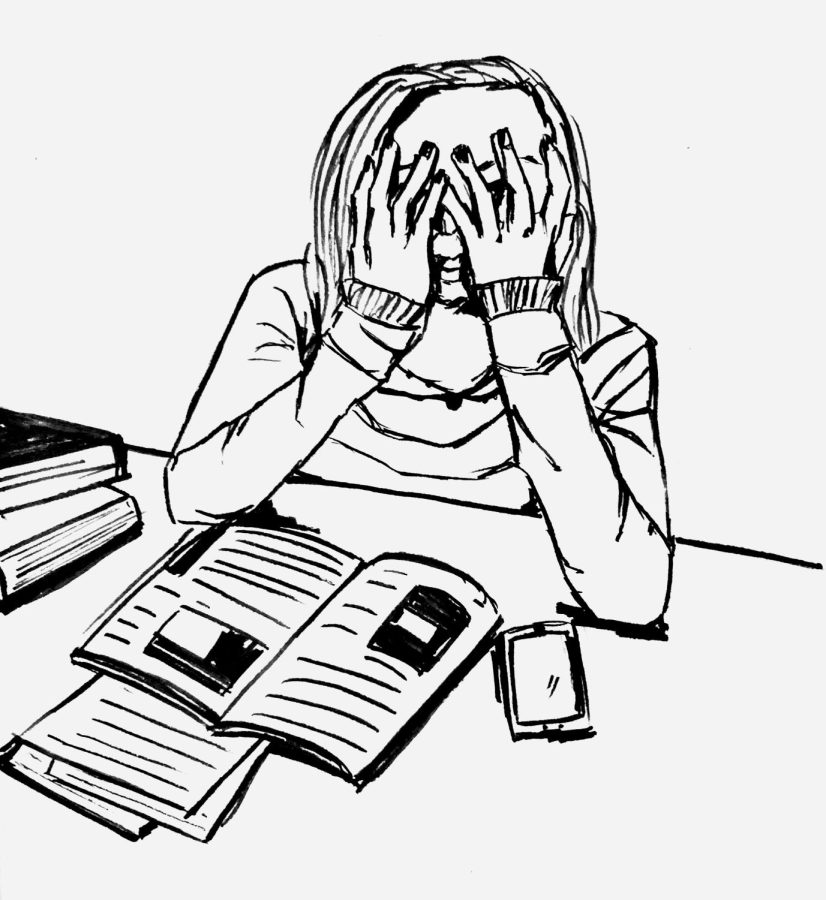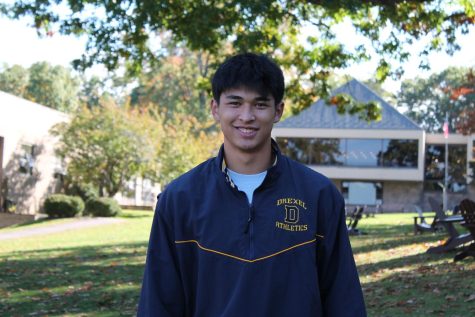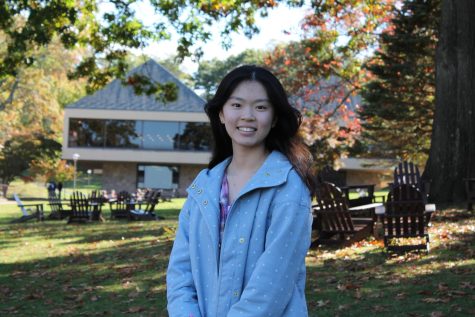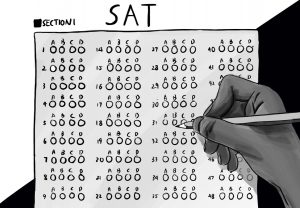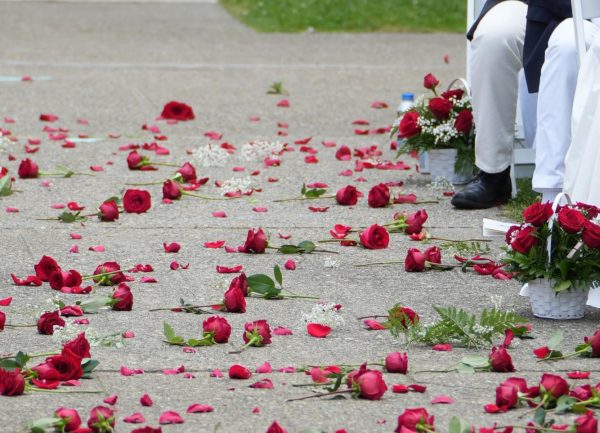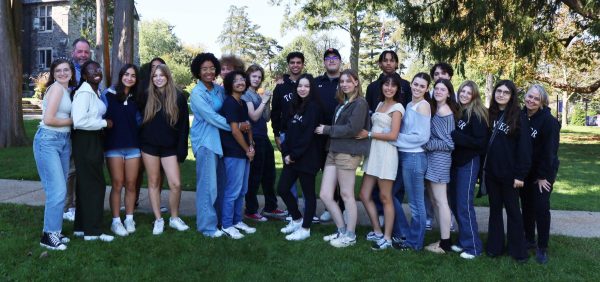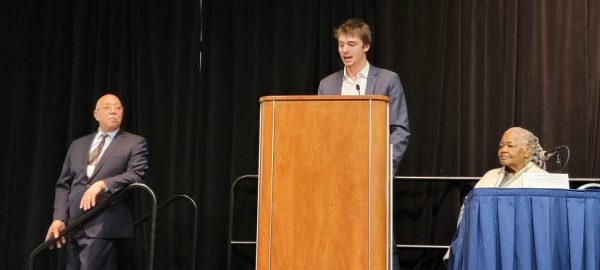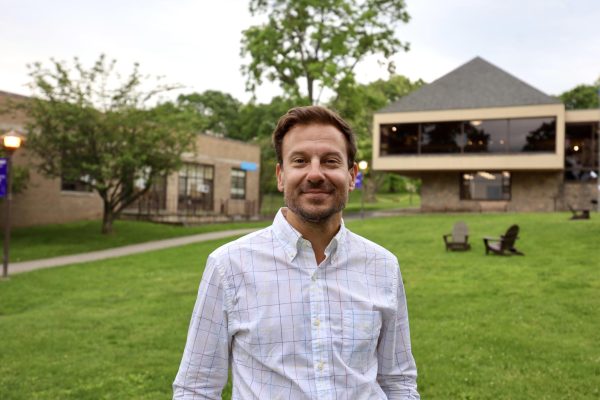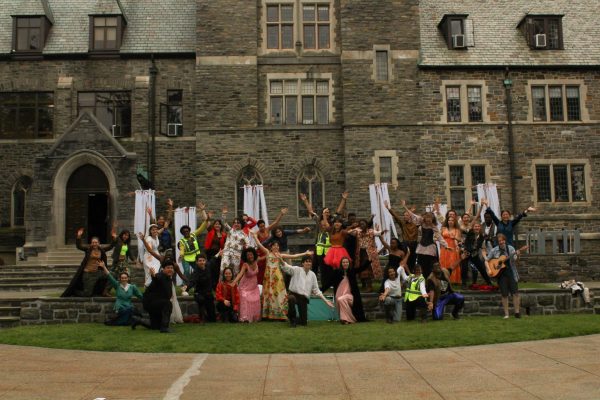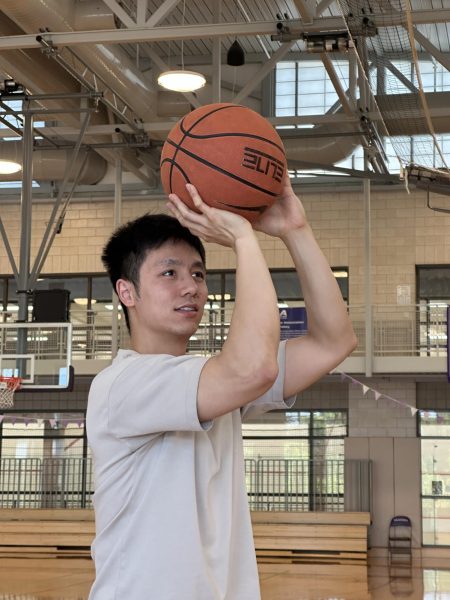Mental health club works to reduce stress
March 31, 2022
The potential for a substantial change in both the homework load along with the schedule has been put into motion by the Mental Health Club. The Mental Health Club at Masters is currently run by Juniors Ana Castillo and Claress Bahamundi, along with faculty members Stefanie Carbone, Cheryl Hajjar, Lydia Whitney, and Brandon Sanders. The mission statement for the club begins with, “Our goal is to work on mental health issues at The Masters School that can be improved directly by the administration.”
During the 2020-2021 school year, Castillo, who at the time was a sophomore, wrote a letter to the administration, starting the conversation about mental health.
In response, the school created a Mental Health Task Force which discussed many of the issues that students face. When that task force disassembled at the end of the year, Castillo and fellow founder Claress Bahamundi continued the work in the form of a club.
While the administration gave some students the opportunity to voice opinions on how the school could adapt to aid struggling students, nothing in the form of concrete change was accomplished. This year, Castillo is looking to build off of those conversations and create more structure in order to create actionable change.
“I’m trying to make it more of a structured proposal where every time we meet with the administration we talk about something specific,” Castillo said.
With mental health becoming a forefront issue, schools have been found to cause or add to the stress that students endure. The Mental Health Club has brought many of these vocalized issues to the schools attention, along with potential ways to ease the stress. However, change is in the control of the administration.
Castillo said, “[The Masters School] definitely cares about mental health and they let the students talk about it, but I personally have not seen any changes that would actually help us.”
Over the last month, the club has ramped up their work to create real change: tackling simultaneously some structural aspects of the school that could be modified, along with doing work that affects the students directly such as bringing in a speaker to present to the school. The club has not met with its 50 or so members, as most of the work has been focused on finishing the proposals that are being presented to administrators this month, however meetings are being planned soon. Additionally, they have created representative positions for some of the members, focusing on boarding students and other niche communities at the school.
“The reps are a new thing we started after winter break which allows people to write their own proposals about something that they’re passionate about,” Bahamundi said.
Earlier this school year, the club released a google form to the school asking about mental health issues that were stemming from the school itself. What they uncovered was the homework load and schedule were two recurring issues that students were harping on.
According to junior Henry Eisenbeis,“After a long day it is imperative that students have time to unwind.
Eisenbeis continued to reflect upon the impact that the longer schedule places on students. He said, “Especially with athletes who get home late, it’s almost impossible to have downtime before you repeat the cycle all over again,”
Since the form was released, and early 2022, Castillo has been conducting research into school schedules and homework and their impact on the mental health of students. Her proposal, landing around the range of 20 pages, has dug deep into the complexities of 80 minute classes and homework loads. Despite hours of researching, Castillo acknowledges that, in the end, real change lies in the hands of the administration and board of trustees.
She said, “There’s two sides to every argument and I hope that we can come to a compromise. That’s my hope because I know that the administration can’t say yes to everything.”



